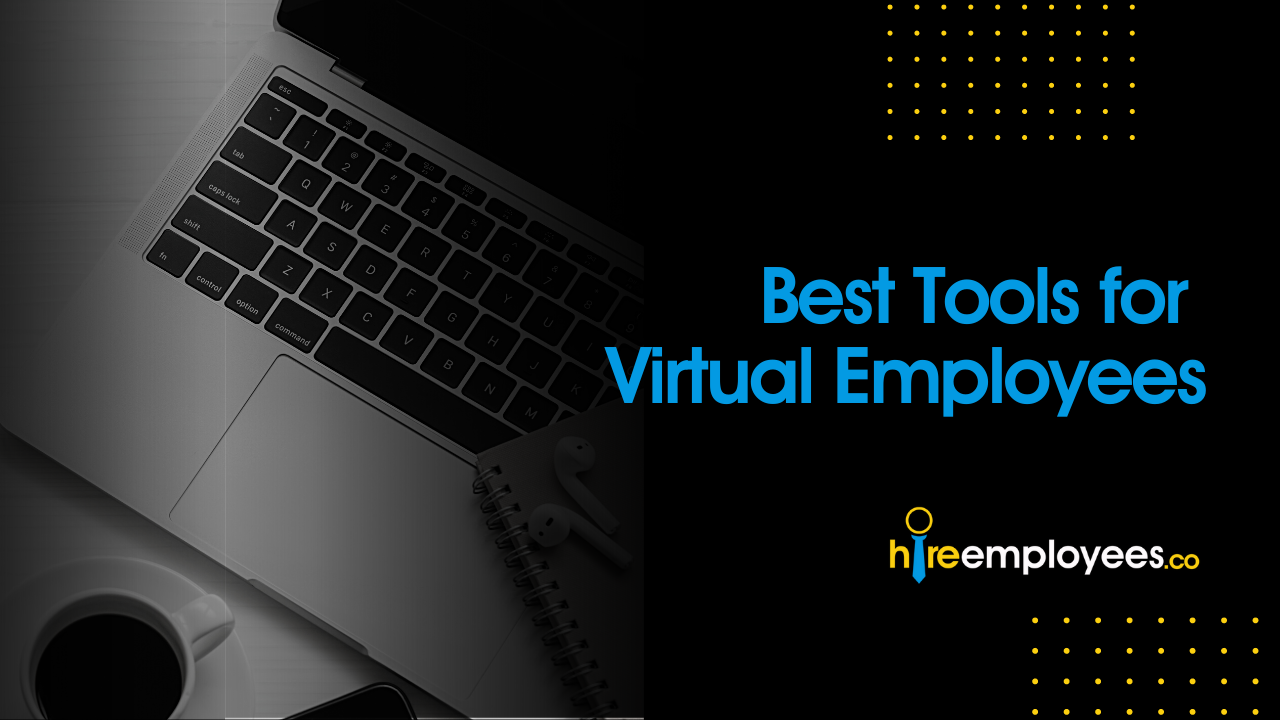
As remote work continues to become the new norm in the business world, managing virtual employees has become a crucial task for many employers. While there are many benefits to having remote employees, such as lower overhead costs and a larger talent pool, it can also pose unique challenges for managers. To help you navigate these challenges and manage your virtual employees effectively, we've compiled a list of the best tools and software for virtual employee management.
Communication Tools
Effective communication is crucial when managing virtual employees. Fortunately, there are many communication tools available to help you stay in touch with your team. Some of the best communication tools for virtual teams include:
1. Slack: A popular instant messaging tool that allows you to create channels for different teams, projects, or topics. You can also share files, make voice and video calls, and integrate it with other tools.
2. Zoom: A video conferencing tool that allows you to hold team meetings, webinars, and one-on-one video calls. It also has features such as screen sharing and virtual backgrounds.
3. Microsoft Teams: A collaboration platform that includes chat, video conferencing, file sharing, and integration with other Microsoft apps.
Project Management Tools
Keeping track of projects and tasks can be challenging when working with virtual employees. Project management tools help you manage tasks, track progress, and collaborate with your team. Some of the best project management tools for virtual teams include:
1. Asana: A popular project management tool that helps you create tasks, set due dates, assign tasks to team members, and track progress.
2. Trello: A visual project management tool that allows you to create boards, cards, and checklists to organize your projects and tasks.
3. Basecamp: A project management tool that includes features such as to-do lists, calendars, file sharing, and message boards.
Time Tracking Tools
Keeping track of time is crucial when managing virtual employees, especially if you're paying them hourly. Time tracking tools help you monitor the time your team spends on tasks and projects. Some of the best time tracking tools for virtual teams include:
1. Toggl: A time tracking tool that allows you to track time by project, client, or task. It also generates reports to help you analyze productivity and billable hours.
2. RescueTime: A time tracking tool that monitors how much time you and your team spend on different websites and applications. It helps you identify productivity gaps and improve time management.
3. Hubstaff: A time tracking tool that includes features such as automatic time tracking, online timesheets, and GPS tracking.
HR and Payroll Tools
Managing virtual employees' HR and payroll can be complicated, but there are tools available to help streamline the process. Some of the best HR and payroll tools for virtual teams include:
1. Gusto: A platform that handles HR, payroll, benefits, and compliance. It also includes features such as time tracking and onboarding.
2. Zenefits: An all-in-one HR platform that includes features such as payroll, benefits, compliance, and time tracking.
3. BambooHR: A cloud-based HR platform that includes features such as onboarding, performance management, and reporting.
Collaboration Tools
Collaboration is key when managing virtual teams. Collaboration tools help your team work together on projects, brainstorm ideas, and share feedback. Some of the best collaboration tools for virtual teams include:
1. Google Workspace: A suite of productivity tools that includes email, document editing, spreadsheets, and presentations. It also includes features such as real-time collaboration and file sharing.
2. Dropbox: A cloud-based file storage and sharing platform that allows your team to access files from anywhere. It also includes collaboration features such as comments and file requests.
3. Notion: A productivity tool that allows you to create and share notes, tasks, and wikis. It also includes project management and database features.
Security Tools
Security is a top priority when managing virtual employees, as sensitive company data can be at risk. Security tools help you protect your data and ensure that your team follows best security practices. Some of the best security tools for virtual teams include:
1. LastPass: A password manager that allows you to store and share passwords securely. It also includes features such as password generation and two-factor authentication.
2. NordVPN: A virtual private network (VPN) that encrypts your internet connection and protects your online activity. It helps you keep your team's online activities private and secure.
3. McAfee: An antivirus software that protects your team's devices from malware and cyber threats. It also includes features such as firewall protection and web security.
Training and Development Tools
Remote teams require ongoing training and development to keep up with the latest industry trends and stay motivated. Training and development tools help you provide your team with the necessary training and resources to grow. Some of the best training and development tools for virtual teams include:
1. Udemy: An online learning platform that offers courses on a wide range of topics, from technical skills to personal development. You can also create and share custom courses for your team.
2. Coursera: An online learning platform that offers courses from top universities and industry experts. You can also earn certifications and degrees for your team.
3. LinkedIn Learning: A learning platform that includes courses on topics such as leadership, productivity, and technology. It also includes personalized recommendations based on your team's interests and goals.
FAQs
What are virtual employee management tools?
Virtual employee management tools are software and applications that help managers manage remote teams. They include communication tools, project management tools, time tracking tools, HR and payroll tools, collaboration tools, security tools, and training and development tools.
What are the benefits of using virtual employee management tools?
Virtual employee management tools help managers stay in touch with their team, monitor productivity, streamline HR and payroll processes, collaborate on projects, protect sensitive data, and provide ongoing training and development.
How do I choose the right virtual employee management tools?
To choose the right virtual employee management tools, consider your team's needs and preferences, your budget, and the features and integrations of the tools. You can also read reviews and ask for recommendations from other managers.
How do I ensure that my team uses virtual employee management tools effectively?
To ensure that your team uses virtual employee management tools effectively, provide training and support, set clear expectations and guidelines, and regularly check in and provide feedback. You can also track usage and productivity to identify areas for improvement.
Can virtual employee management tools replace in-person communication and collaboration?
Virtual employee management tools can help facilitate communication and collaboration, but they cannot replace in-person interaction entirely. It's important to balance virtual and in-person communication and provide opportunities for team building and relationship building.
Conclusion
Managing virtual employees can be challenging, but the right tools and software can make it easier and more effective. By using communication tools, project management tools, time tracking tools, HR and payroll tools, collaboration tools, security tools, and training and development tools, you can stay in touch with your team, monitor productivity, protect sensitive data, and provide ongoing training and development. Choose the right tools for your team's needs, provide training and support, and regularly check in to ensure that your team uses the tools effectively. HireEmployees has it’s own proprietary management tools for effective management which are cloud based. Hence, the best practices can be implemented for your company too. Now matter How small or big it is. Get a quote from us. Get in touch with [email protected]
























































